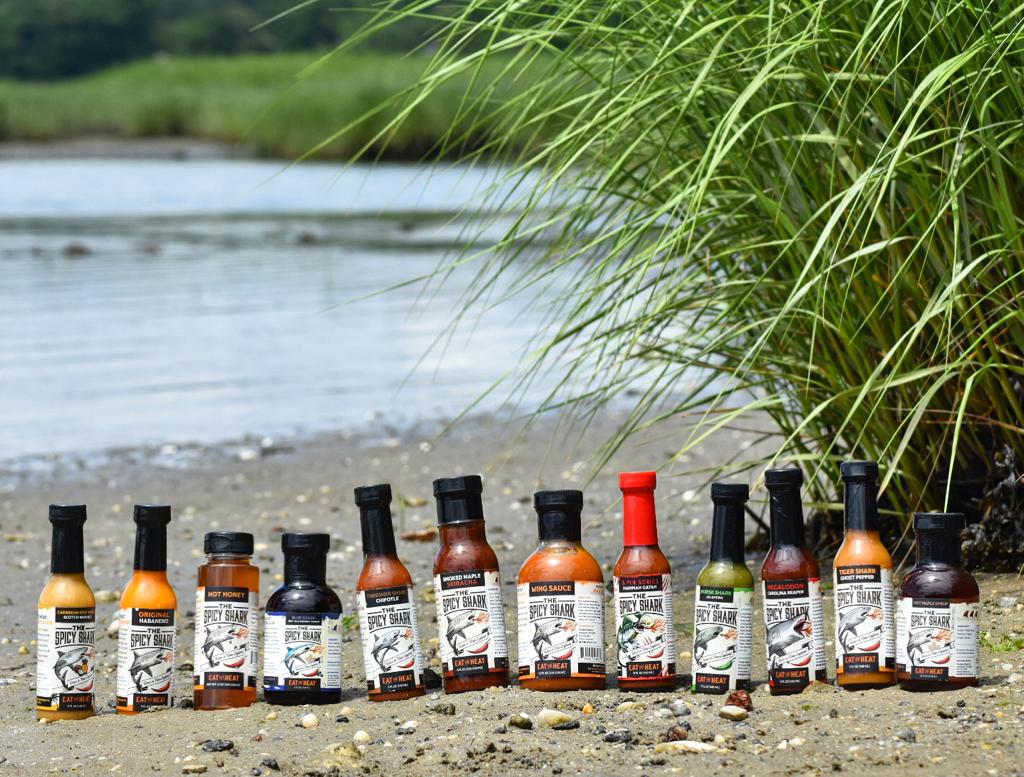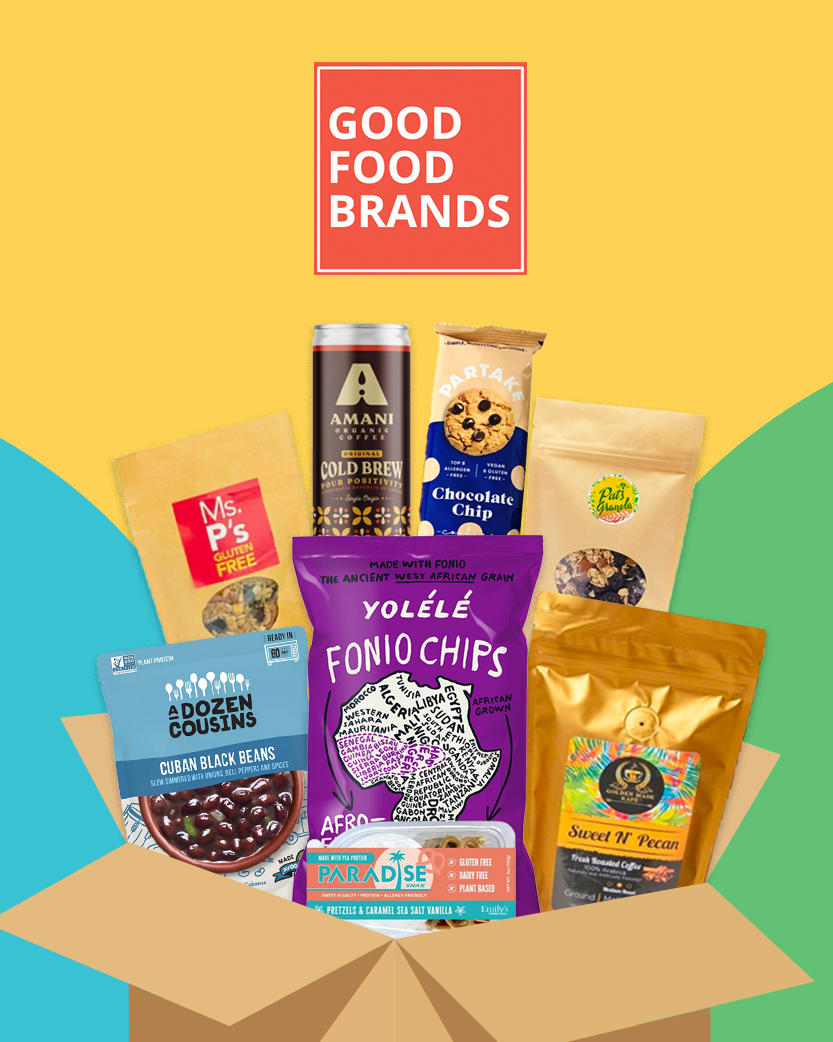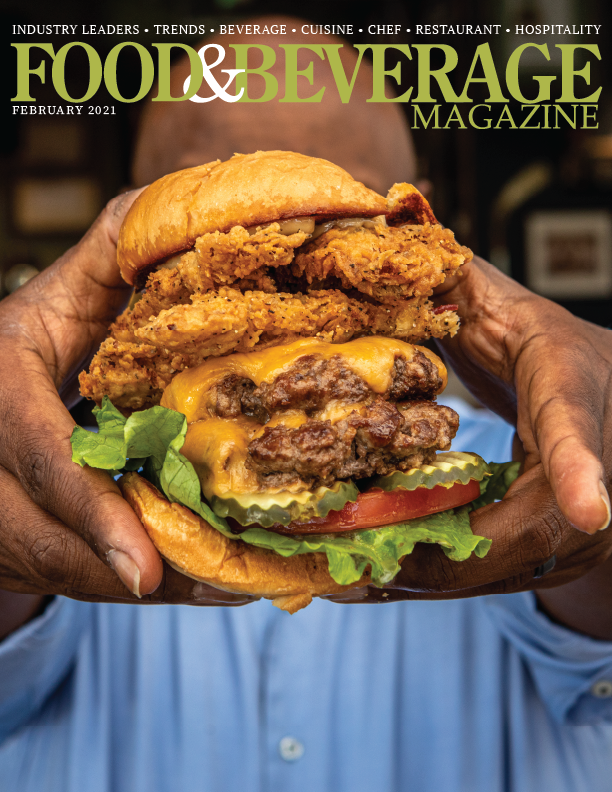Pour it On! – Food & Beverage Magazine
Throughout the pandemic, many have been eschewing restaurants and trying their own hands at cooking. As results vary, many turn to condiments to make things right(er). Even so, many condiment creators are facing the same challenges other food-related businesses do and have had to really pour it on so that we can too.
Well-Dressed Entrepreneurs
While many food-makers start in their own kitchens, others leave large companies to create smaller ones. Citing a lack of innovation in the sauce space that was “in direct conflict” with changing demographics and desires – including demand for “clean” foods with minimal artificial ingredients – Holic Foods (www.HolicFoods.com) CEO, Tonio Torres, left a gig at JP Morgan Chase to chase dressing dreams.
“Our goal is to influence the…condiment space in a way that inspires families…to seek new flavors,” Torres says.
Despite his business experience, Torres knew little about the food business. Becoming a “student of industry,” he attended food events and asked questions. In addition to garnering certificates in better food process control and developing its own regulatory protocols, the female-owned, minority-led company soon began getting requests for private-label offerings by major retailers. With distribution partnerships with KeHE, DPI, Jakes Finer Foods and UNFI, Holic products can be found at stores across the nation, including Kroger and Whole Foods.
After building a 35,000-square foot manufacturing facility, Holic expanded further by introducing its “Pantry Basix” value brand that gained distribution across 15,500 stores in its first quarter. “There are so many barriers to entry that prevent independent startups from finding success,” Torres maintains, “[but we] stayed positive and plugged on.”
Another sauce-y woman-run business is Bold Palate Foods (www.boldpalatefoods.com) whose founder, Kate Mann, started making salads at age nine. Though Mann’s “Salad Every Day” blog attracted international fans, many expressed concerns about the fats and preservatives in many dressings. One fan even suggested that, “once you put the dressing on…you might as well be eating a burger.”
Determined to create dressings that make salads healthier and also help the environment, Mann began experimenting with plant-based ingredients and refused to add sugar. Like Torres, Mann also conducted research at industry events and hired a food scientist to assist with R&D. When she began offering demonstrations at places like Williams-Sonoma, Mann was often asked to bottle her creations. Like any good entrepreneur, Mann did as the market demanded and has benefitted. As is true of most entrepreneurs, however, Mann has faced challenges. In addition to having difficulty sourcing ingredients and having potential manufacturing partners suggest recipe changes, Mann officially moved to market just as COVID hit. “Talk about bad timing!” she muses.
As the market recognized the quality of her products, however, she soon found herself being courted by stores. “Traditional retail has been a viable means of support,”Mann assures, “because they are looking for plant-based items…that give homemade food the gourmet restaurant flavor people are seeking.”
Veteran Sauce Makers
Another new food entrepreneur is Navy Veteran Abraham Kamarck of True Made Foods (www.truemadefoods.com) who cites necessity as the commanding officer of his invention. Tired of trying to stop his own kids from downing bottles of ketchup, a.k.a., “red sugar”, Kamarck echoed Mann and decided to make a version with health-supporting vegetables and without sugars. “Parents are always trying to hide extra veggies in their kids’ foods and trying to cut added sugars out,” Kamarck observes. “I was hoping to give parents…a ketchup they could feel good about their kids using.”
Though larger makers are now releasing veggie-based condiments, True Made was the first. Even so, as many brands command more shelf space and bigger budgets, the seas have been rough. “The industry is set-up to support big players,” Kamarck contends.
By blitzing stores with demonstrations and tastings, Kamarck got the True Made line (which also includes veggie-based mustards and hot sauces) into Stop & Shop, Whole Foods, BigY, Hannaford’s, Shaw’s, Roche Bros., and even into Fenway Park. “The Red Sox really care about their fans,” Kamarck observes. ”It’s been an amazing partnership!” Having hit a “homer”, Kamarck looks forward with hope. “If we want to create a better, stronger America,” he asserts, “we have to start with the ketchup!
Army Veteran James Lee, III, is the second generation running J. Lee’s Gourmet BBQ Sauce (www.jleessauce.com), which has won many international barbecue contests and was featured at the 2016 Oscars and in a 2017 Super Bowl ad. “I wanted my customers to have the same quality of products for their family that I give to my family,” Lee says, echoing Kamarck.
Instead of demonstrating at stores, Lee hosted focus groups while on active duty with military personnel and gathered “invaluable consumer insights” while serving in Korea and Germany. In 2013, Lee entered into a manufacturing agreement with a co-packer and has used many distribution partners and media outlets to spread the word and grow the product line to include sugar-free sauces that are diabetic-friendly. Even so, he also admits that, “small companies like ours…face challenges.” While being a minority-owned company may have added to his challenges, Lee maintains that his military training and dedication to his family business as well as diversity programs have seen him through.
“I want…to bring a healthier and more versatile product to the market,” Lee explains, proudly noting that his sauces are gluten free with no MSG or corn syrup and that they also contain turmeric and are Kosher, “one that was…loved universally because of its unique taste and health properties.”
Another food industry Navy Veteran is Michael Russo of Wild Bill’s Craft Beverage Co. While the name and URL, drinkwildbills.com, bespeak a beverage company, Wild Bill’s offers sauces in addition to sodas and coffees. “Sweet soda and spicy sauces are a match made in heaven,” Russo suggests, noting how many chefs at events like the World Food Championship pair Bill’s sodas and sauces.
Though they started at county fairs (as many other self-started suppliers do), Wild Bill soon rode into the retail rodeo and began to face the bulls of business. “A big challenge has been finding the right partners to assist…in manufacturing the product at scale,” Russo admits, describing a “grassroots approach” that includes brand ambassadors in online foodie and gaming audiences. “We were not willing to compromise on our quality or flavor.”
Though COVID exacerbated the issues inherent in independent invention, Russo sees a light at the end of the tunnel. “We plan to continue attending events…while growing our retail business,” he maintains, noting a recent partnership with restaurants that have “a need and appreciation for our…sodas, hot sauces and more.”
Read Also: NY Restaurant Show and Coffee Fest Draw Thousands – F & B
International Flavors
While Wild Bill and his saucy sidekicks ride across America, Mark Engel has taken a more international approach with oo’mäme (www.oomame.net). Like Torres, Engel supported Fortune 100 companies with product development and innovation before developing his own innovative product. Like Lee, Engel also traveled extensively and created“an entirely new category” of exotic shelf-stable sauces. “We challenge the status quoby applying design thinking to…product development,” Engel explains.
Though based upon the Asian-inspired concept of the “fifth taste” known as umami, oo’mäme’s all-natural products also offer flavors of Morocco, Mexico, and India. “We draw inspiration from…places that can be out of reach for many,” Engel observes.
While COVID has held up Engel’s international ingredients and made stores less willing to consider new products, oo’mäme continues to gain acclaim (including a slew of Scovie hot sauce awards) and fans from the represented regions. In addition to being sold by HEB and Whole Foods, oo’mämewas recently featured on HSN and has already been invited back. “We [have also] found a very experienced Amazon retailer who has taken us on and hope to grow our business on that platform,” Engel adds.
Good for Your Jaws
While New England may not be considered a hot sauce center, Gabe DiSaverio hopes to change that. “I want to put us on the map as a spicy region,” the NH resident says.
Though the food industry can be a shark tank, the founder of The Spicy Shark (www.thespicyshark.com) took a page from his days with Boston Beer Co. (makers of the wide range of Sam Adams beers) and expanded his line to include Scovie-winning sauces, hot honeys, and even hot maple syrup. “Recipe creation…lets the creative juices flow,” DiSaverio maintains, “but scaling…is…not nearly as simple as just multiplying the ingredient list.”
Despite years of industry experience, DiSaverio admits scaling has been a challenge, especially during COVID. “My already tight margin has [shrunk] dramatically,” DiSaverio explains, “and I haven’t felt comfortable raising my price.” Even so, DiSaverio has grown from farmers markets to Whole Foods markets and even aquariums! On July 30, he will host the inaugural New England Hot Sauce Fest (www.newenglandhotsaucefest.com) at which The Spicy Shark will partner with other sauce makers and donate proceeds to shark-supporting organizations like Blue Ocean Society and The Seacoast Science Center.
“Our goals are to be the largest craft hot sauce in the country,” DiSaverio says, “and to continue to raise awareness…[to] help in shark and ocean conservation.” While the sea may often be rough, DiSaverio is buoyed by his passions and looks forward to circling ever-bigger competitors as time goes on. “I love hot sauce and all things spicy,” he reiterates, “and I’m a firm believer that doing what you love is a key component to inner happiness!”







